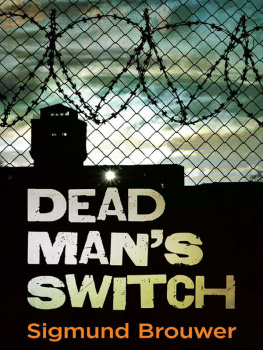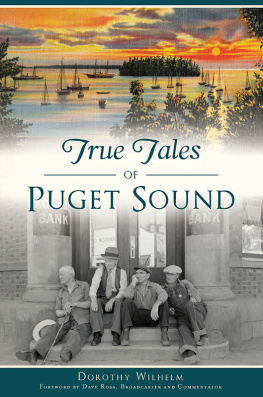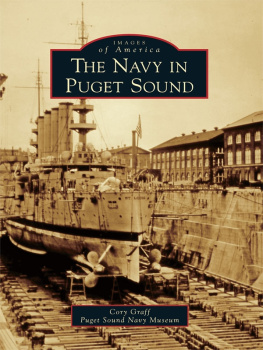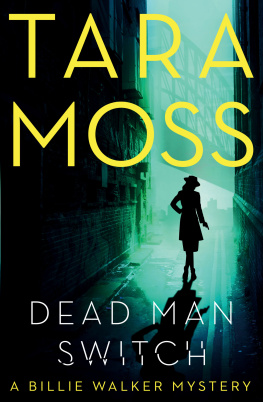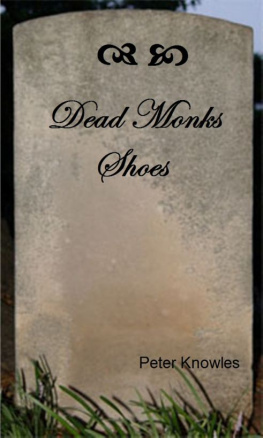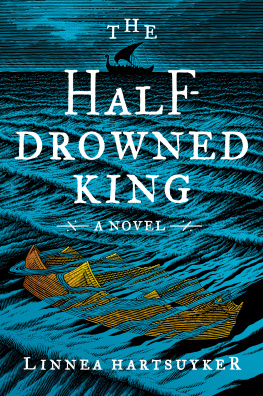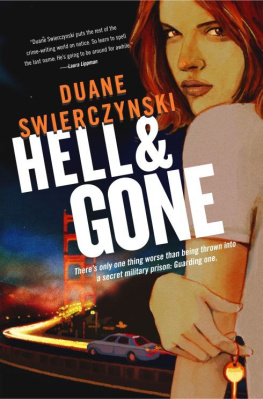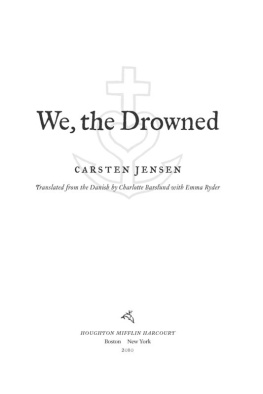

HARVEST HOUSE PUBLISHERS
EUGENE, OREGON
Cover by Left Coast Design, Portland, Oregon
Cover photo Shutterstock / maigi
This is a work of fiction. Names, characters, places, and incidents are products of the authors imagination or are used fictitiously. Any resemblance to actual persons, living or dead, is entirely coincidental.
DEAD MANS SWITCH
Copyright 2014 by Sigmund Brouwer
Published by Harvest House Publishers
Eugene, Oregon 97402
www.harvesthousepublishers.com
Library of Congress Cataloging-in-Publication Data
Brouwer, Sigmund
Dead mans switch / Sigmund Brouwer.
pages cm
Summary: On a remote island in Washingtons Puget Sound that houses a federal prison where his father works, high school senior King sets out alone to unravel a dark conspiracy after receiving a fail safe email from his best friend who drowned in a boating accident two weeks earlier.
ISBN 978-0-7369-1747-6 (pbk.)
ISBN 978-0-7369-5723-6 (eBook)
[1. Mystery and detective stories. 2. ConspiraciesFiction. 3. PrisonsFiction. 4. IslandsFiction. 5. Washington (State)Fiction.] I. Title.
PZ7.B79984Dc 2014
[Fic]dc23
2013015454
All rights reserved. No part of this electronic publication may be reproduced, stored in a retrieval system, distributed, or transmitted in any form or by any meanselectronic, mechanical, digital, photocopy, recording, or any otherwithout the prior written permission of the publisher. The authorized purchaser has been granted a nontransferable, nonexclusive, and noncommercial right to access and view this electronic publication, and purchaser agrees to do so only in accordance with the terms of use under which it was purchased or transmitted. Participation in or encouragement of piracy of copyrighted materials in violation of authors and publishers rights is strictly prohibited.
Contents
Messages can be sent in many ways.
From a method as ancient as a carving on a tree, to lettering in plain view that just needs to be seen in a different light. To binary digits sent through cyberspace. To a video from a friend.
Heres whats different. The messages to King started with emails that his friend sent him two weeks after his friend drowned trying to escape the island.
Trust no authorities. They will hunt you too.
When King becomes the hunted, he is trapped on the same island, where he can trust no one. Not even his father.
On the morning that King betrayed his father, the white of the clouds was so pure against a blue sky that it almost hurt the eyes, and the crispness of the air and sigh of a breeze among the swaying tops of the spruce gave the illusion of eternal tranquility.
But King felt no tranquility, and he could cling to no illusions. Especially about his father.
In front of King, an arrow-shaped gash on the north side of the spruce tree was the horrible proof. The gash was head high, pointing upward. Exactly as promised in the email that had sent King here. The sap had dried from the gash, trapping a few ants at the edges where gravity had elongated the slowly falling drops.
King had not wanted to find this gash because of what it might mean about the emailand about his father.
Much of the time, especially early in the day, Pacific Coast mist and fog defined the island. It seemed to rise from the waters of Puget Sound yet also descend from the tall spruce on the hills to the rocky shores until, as sentries, the spruce dissolved into a shroud that dampened but didnt completely muffle the low barking of seals gathered at the northern end, where they bobbed and rolled effortlessly in the waves that made the island such a secure prison.
William Lyon Mackenzie King always felt as if the fog were there to taunt him, pressing in as a reminder that the island was a prison that he shared with 103 of the most dangerous criminals in America.
A few hours earlier, King had woken to sunshine slicing through the parted window shades of his bedroom. Much as he hated the fog, his constant enemy, this was a morning when King wished for the fogs presence.
He needed the island mist because if a guard caught him among the trees in the islands forbidden zone, hed be unable to spin or charm or bluff his way out of the situation with the creative dialogue that usually left adultsexcept his fathershaking their heads at him with cheerful resignation.
But it was more than that.
A son should not betray his father.
King had been able to sneak to this location because of a hack into the prisons infrared scanning system that prevented it from detecting his body heat. It hurt King inside to think that by sneaking to this location on the island, he was trusting a hacker rather than believing his father was innocent.
So as much as he hated the fog, King wanted it to surround and hide him because he was about to commit an act of shame. A son should not betray his father.
It wasnt too late. If he walked away now, there would be no betrayal, no disloyalty. He felt as if he were swaying at the edge of a rooftop on a high building, knowing the consequences of the next and final step.
If a son truly had faith in his father, he wouldnt need to prove that his father was innocent of a crime the world did not yet know existed. A son with faith in his father would turn around and leave the forbidden zone.
But if his father was innocent, why hadnt King been surrounded by armed guards by now?
King didnt like the answer. It could only mean the email had been accurate when it promised that the prisons computer system would shut down the infrared scanners for two hours.
Which meant something frightening about the remainder of that email message. It meant his father had already betrayed him.
King stood on one of the slopes overlooking the cleared flatland where the worst offenders in the US prison system were locked in buildings surrounded by an electric fence. The barbed wire bounced silver sunshine at him in the middle of the first sunny morning of the week.
Tilting his view away from the shiny silver strands of lethal wire, he looked beyond at the snow-covered peaks of the Olympic Mountains, so often hidden in the island fogs. On too-rare days of sunshine like this, the peaks reminded King that only a few miles of frigid and deep channel waters separated McNeil Island from Tacoma. Men had been imprisoned on this island for more than a century, and it was the cold water that kept them prisoners. The unpredictable tidal currents of the sound were dangerous enough, but an escapees body could not withstand the hypothermia that would set in long before he swam halfway to the mainland.
This centurys inmates were too dangerous to be allowed to roam the island. They never saw the Olympic Mountains. Instead, they saw concrete blocks painted smooth, inch-thick bullet-proof glass, and massive doors that slid sideways only if the correct password was punched into an electric lock from the main control room by guards who surveyed every movement by surveillance cameras. The password was changed each day, and when a door slid open, it revealed another door because every cell and every hallway had two doors with a five-foot gap between, and only one door could be opened at a time.
As King placed his hands on the thick branch near his head, he saw the occasional flit of black and gray as chickadees fluttered from branch to branch above him. He was nearly at maximum elevation on the island315 feet. He heard the chickadees, the whistling of wind in the branches, and the occasional throbbing diesel engine of a fishing trawler out of sight somewhere in the channel. The inmates only heard the hush of air moving from the narrow vents in the ceiling because they were each completely isolated. If they did hear human screams, the sound came from themselves. Not screams of fear, but rage.
Next page
